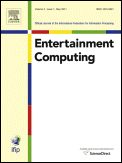
Entertainment Computing
Scope & Guideline
Unleashing Creativity Through Technology in Entertainment
Introduction
Aims and Scopes
- Interactive Entertainment Technologies:
Research on the development and application of interactive technologies, including virtual reality (VR), augmented reality (AR), and artificial intelligence (AI) in games and educational environments. - Gamification and Learning:
Exploration of gamification strategies in educational contexts, analyzing how game mechanics can enhance learning, engagement, and motivation among students. - User Experience and Engagement:
Studies focusing on user experience (UX) design principles in games and interactive media, investigating factors that influence player engagement and satisfaction. - Social and Psychological Impact of Games:
Examination of the social and psychological effects of gaming on various demographics, including mental health, social interaction, and cognitive development. - Multimodal and Cross-Disciplinary Approaches:
Integration of diverse methodologies from fields such as computer science, psychology, education, and design to create comprehensive frameworks for analyzing and improving entertainment experiences. - Cultural and Ethical Considerations in Gaming:
Research addressing cultural implications and ethical considerations surrounding gaming practices, including representation, accessibility, and the societal impact of digital entertainment.
Trending and Emerging
- AI and Machine Learning in Gaming:
Research on the application of AI and machine learning techniques to enhance gaming experiences, including adaptive difficulty levels, player behavior analysis, and NPC (non-player character) intelligence. - Virtual and Augmented Reality Applications:
An increase in studies focusing on the use of VR and AR technologies for immersive entertainment experiences, educational applications, and therapeutic interventions. - Health and Well-being through Gaming:
Emerging research on the benefits of gaming for mental health and well-being, including serious games designed for therapy and rehabilitation. - Interactive and Immersive Learning Environments:
Growing interest in the design of interactive learning environments that leverage gaming principles to enhance educational outcomes and student engagement. - Data-Driven Game Design:
Research utilizing big data analytics and user data to inform game design decisions, providing insights into player preferences and behavior patterns. - Social and Collaborative Gaming Experiences:
A trend towards exploring social interaction in gaming, including multiplayer experiences, community building, and the impact of gaming on social capital.
Declining or Waning
- Traditional Game Genres:
There has been a noticeable decrease in research focused on traditional game genres, as the journal shifts towards exploring innovative gaming experiences and the integration of new technologies. - Non-Interactive Media Studies:
Research on passive forms of entertainment, such as movies and television, is waning as the journal increasingly emphasizes interactive and participatory digital experiences. - Basic Game Design Principles:
Discussions centered on fundamental game design elements are becoming less frequent, replaced by more advanced explorations of complex systems and user interactions. - Single-Domain Focus Studies:
There is a reduction in studies that concentrate solely on one domain (e.g., only gaming or only education), as interdisciplinary research gains more traction and relevance. - Conventional Educational Methods:
Research on traditional educational methods without a gamified or interactive component is declining, as the journal increasingly advocates for innovative, technology-enhanced learning strategies.
Similar Journals
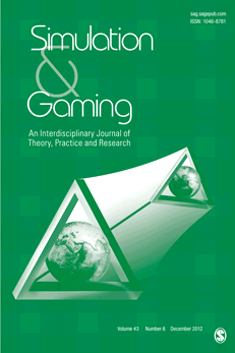
SIMULATION & GAMING
Navigating New Frontiers in Interactive LearningSIMULATION & GAMING, published by SAGE PUBLICATIONS INC, is a leading academic journal that explores the intersection of simulation and gaming within diverse fields such as business, social sciences, and computer science. With an ISSN of 1046-8781 and an E-ISSN of 1552-826X, this journal stands out in its commitment to advancing knowledge through high-quality research and innovative methodologies. As a testament to its influence, it is ranked Q1 in Social Sciences and Q2 in both Business, Management and Accounting, and Computer Science Applications, indicating its reputable position among scholars. Researchers, educators, and professionals will find valuable insights into the applications and implications of simulation and gaming, making it an essential resource for cutting-edge developments in these rapidly evolving domains. Access to its comprehensive archives allows for exploration of pivotal studies dating back to 1970, supporting the ongoing dialogue in this interdisciplinary area of research.

EDMETIC
Transforming education with cutting-edge technology insights.EDMETIC is a premier open access journal dedicated to the field of educational technology and innovation, published by the University of Córdoba, Faculty of Education Sciences. With its ISSN 2254-0059 and E-ISSN 2254-0059, EDMETIC has been serving the academic community since 2012, providing a platform for the dissemination of high-quality research that explores the intersection of education and digital technologies. Situated in the vibrant city of Córdoba, Spain, this journal invites contributions from both established and emerging scholars worldwide. With a commitment to fostering critical discussions and advancements in educational practices, EDMETIC is pivotal for researchers, professionals, and students interested in the dynamic landscape of educational technology. Authors and readers benefit from its open access model, which ensures that groundbreaking research is accessible to all, promoting a culture of knowledge sharing and collaboration.
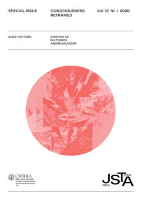
Journal of Science and Technology of the Arts
Uniting Artistic Expression with Technological Progress.The Journal of Science and Technology of the Arts, published by UNIV CATOLICA PORTUGUESA, is a pioneering open access journal dedicated to the interrelation of the arts and scientific advancements. Since its inception in 2009, it has served as a critical platform for disseminating innovative research across various disciplines, including Visual Arts, Performing Arts, Music, and Conservation. With its ISSN 1646-9798 and E-ISSN 2183-0088, the journal operates from Portugal, attracting a diverse international audience. Although it is currently ranked in Q4 for Arts and Humanities (miscellaneous) and Computer Science Applications, it has achieved notable Q3 rankings in Conservation, Music, and Visual Arts and Performing Arts as of 2023. The journal's impact is reflected in its Scopus rankings, which place it in the midst of its peers, showcasing its growing influence. Through its commitment to fostering interdisciplinary dialogue, the Journal of Science and Technology of the Arts is essential for researchers, professionals, and students interested in the innovative integration of arts and technology.
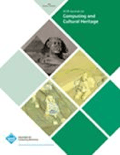
ACM Journal on Computing and Cultural Heritage
Unveiling New Dimensions in Cultural Conservation.ACM Journal on Computing and Cultural Heritage is a leading scholarly journal published by the Association for Computing Machinery, focusing on the intersection of technology, computing, and the preservation of cultural heritage. Established in 2008, the journal has consistently provided a platform for innovative research that bridges the gap between computational techniques and cultural conservation strategies. With a robust impact factor reflecting its academic rigor and relevance—ranked Q2 in both Computer Graphics and Computer-Aided Design and Computer Science Applications, and Q1 in Conservation—this journal stands out in its ability to foster interdisciplinary collaborations. Notably, it ranks in the top 5% of the Arts and Humanities within its field, highlighting its pivotal role in advancing knowledge and practice in conservation through technology. The journal is vital for researchers, professionals, and students keen on exploring how computing innovations can enhance the safeguarding and interpretation of cultural heritage. Although access options are not distinctly categorized, contributors and readers are invited to engage with the cutting-edge research published through various methods that support scholarly discourse.
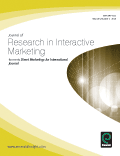
Journal of Research in Interactive Marketing
Leading the Charge in Interactive Marketing ResearchJournal of Research in Interactive Marketing, published by Emerald Group Publishing Ltd, stands as a premier outlet for scholarly research within the dynamic field of marketing, specifically focusing on the intersection of technology and consumer behavior. With an impressive 2023 Scopus ranking placing it in the Q1 category of Marketing, and an elite percentile of 95th among its peers, this journal is dedicated to advancing the theoretical and practical understanding of interactive marketing. The journal covers a wide array of topics that include digital marketing trends, consumer engagement strategies, and the impact of social media on marketing effectiveness, consistently attracting high-quality submissions from researchers and professionals alike. Operating since 2010, it continues to reflect the evolving landscape of marketing practices and technology, making it a vital resource for scholars and industry leaders seeking to enhance their knowledge and strategies in this fast-paced sector. While not open access, the journal ensures that its content remains relevant and accessible to those at the forefront of marketing innovation and research.
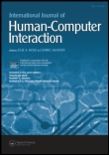
INTERNATIONAL JOURNAL OF HUMAN-COMPUTER INTERACTION
Empowering the Next Generation of Interaction StudiesINTERNATIONAL JOURNAL OF HUMAN-COMPUTER INTERACTION, published by Taylor & Francis Inc, stands at the forefront of research within the interdisciplinary fields of human-computer interaction, human factors, and ergonomics. Since its establishment, the journal has consistently contributed to advancing the understanding of the interactions between people and computers, making it a vital resource for researchers, professionals, and students alike. With an impressive impact factor reflecting its high citation rate, this journal is recognized as a Q1 publication in both Computer Science Applications and Human Factors and Ergonomics categories for 2023, showcasing its stature within the academic community. Additionally, it boasts a commendable ranking within the top percentiles in key areas on Scopus, ensuring that the research published here reaches broad scholarly audiences. Available in traditional subscription format, the journal covers seminal studies from 1989 to 2024, reflecting ongoing innovation in technology and its applications in everyday life, and thus serves as an essential platform for pioneering research that shapes the future of user experience.
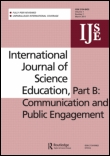
International Journal of Science Education Part B-Communication and Public Engagement
Cultivating a community of science communicators and educators.The International Journal of Science Education Part B: Communication and Public Engagement, published by Routledge Journals, Taylor & Francis Ltd, is a leading peer-reviewed journal dedicated to advancing research in the evolving fields of science communication and public engagement in education. With an ISSN of 2154-8455 and E-ISSN of 2154-8463, the journal has established itself as a key resource for researchers, educators, and practitioners interested in innovative communication strategies and engagement practices that enhance public understanding of science. It holds a commendable Q2 ranking in both the Communication and Education categories for 2023, reflecting its significant impact within academia—ranked 139th in Social Sciences Communication and 515th in Social Sciences Education based on Scopus metrics. Over its publication years from 2011 to 2024, the journal has provided a platform for scholars to share their insights and empirical findings, fostering dialogue and collaboration among professionals. Although it does not offer open access, it remains a vital source of knowledge, keeping stakeholders informed about the latest developments in science education and public outreach.
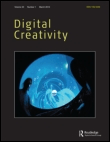
DIGITAL CREATIVITY
Unleashing the Power of Creativity in the Digital RealmDIGITAL CREATIVITY, published by Routledge Journals, Taylor & Francis Ltd, is a distinguished academic journal that serves as a vital platform for interdisciplinary research across the realms of Arts and Humanities, Computational Theory and Mathematics, Computer Graphics, and Human-Computer Interaction. Since its inception in 2005, this journal has aimed to explore the intersection of digital technologies and creative practices, making significant contributions to our understanding of digital aesthetics, interactive design, and the evolving nature of creativity in the digital age. With an impressive Q1 ranking in Arts and Humanities and notable standings in related computational fields, DIGITAL CREATIVITY appeals to a diverse audience of researchers, professionals, and students eager to engage with pioneering studies and innovative methodologies. While it presents valuable content primarily through subscription access, its credence in driving forward-thinking discussions is underscored by its ongoing relevance and commitment to advancing knowledge in a rapidly changing digital landscape. Join the conversation and contribute to shaping the future of digital creativity.
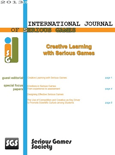
International Journal of Serious Games
Unlocking the Power of Play for Meaningful ChangeThe International Journal of Serious Games is a pioneering publication dedicated to advancing the interdisciplinary field of serious games and their application in various domains such as education, artificial intelligence, and human-computer interaction. Published by SERIOUS GAMES SOC in Italy, this Open Access journal has been facilitating unrestricted access to innovative research since 2014. The journal is recognized for its quality, achieving prominent rankings in its categories, including Q2 in Education and Q2 in Computer Graphics and Computer-Aided Design as of 2023. With its commitment to academic rigor, it places itself as an essential resource for researchers, professionals, and students seeking to explore the transformative potential of serious games. Housed at the IST INT COMUNICAZIONI, VILLA PIAGGIO, GENOA, the journal continues to foster knowledge sharing and collaboration across disciplines, enriching the global discourse on gaming for impact.
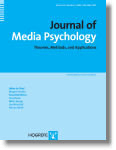
Journal of Media Psychology-Theories Methods and Applications
Pioneering Research at the Intersection of Media and Psychology.Journal of Media Psychology: Theories, Methods and Applications, published by HOGREFE PUBLISHING CORP, is a distinguished journal dedicated to exploring the intricate relations between media and psychological processes. With an ISSN of 1864-1105 and E-ISSN 2151-2388, this journal serves as an essential platform for researchers and professionals in the fields of Applied Psychology, Communication, and Social Psychology, evidenced by its impressive category quartiles ranking of Q3 and Q2 respectively in 2023. The journal’s broad scope encompasses various methodologies and theoretical frameworks, aimed at facilitating dialogue and innovation in media psychology, making significant contributions to both academic and practical applications. Recognized for its influence, it ranks within the top 73rd percentile in the Communication category according to Scopus, solidifying its reputation as a vital resource for advancing knowledge and understanding in this rapidly evolving field. Researchers and students will benefit from its rigorous peer-reviewed articles that inform both scholarly discourse and practical endeavors without Open Access barriers, ensuring accessibility to insightful research that shapes the future of media psychology.